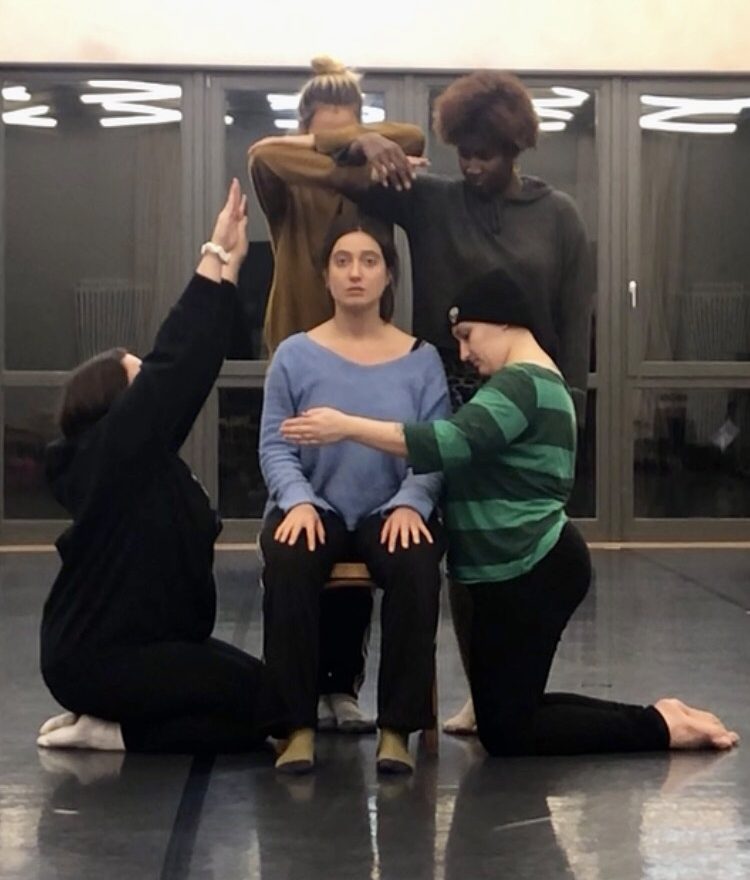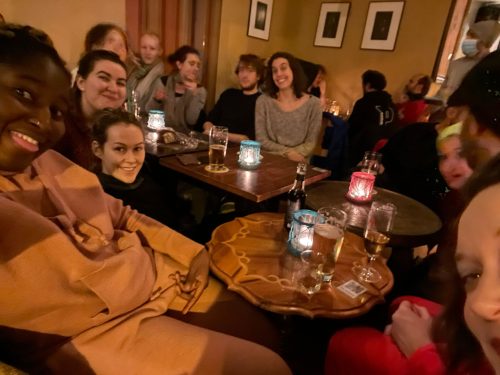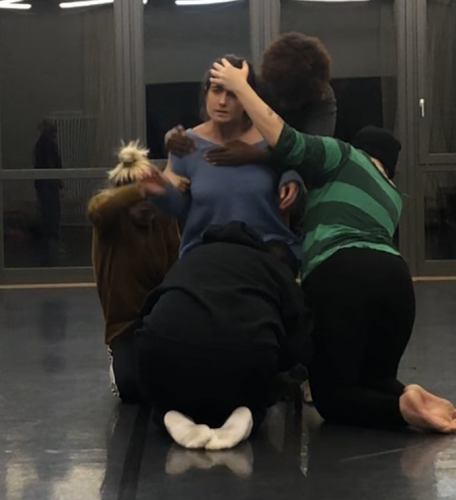
The Perfect Ensemble

A new semester begins! Only three weeks in and I already feel like our group has discovered such a profound and wonderful new way of working together. We realized, as our group shifted for the third time since we’ve been in this program, that we never had a chance to sit down and get to know where each of us was coming from, so we did. We all sat down over a cute little picnic dinner and talked about why we came to Arthaus (and Columbia) and what we need/want from a program like this. As we all spoke, a question arose, time and time again: “Why didn’t we do this sooner?!”
Fear, distrust, uncertainty, insecurity, shame. All of these, killers of creativity and comradery. I think the Berlin group and Chicago group had a healthy share of all these emotions and more thanks to the pandemic and several unforeseeable circumstances. We’d begun to realize that even though we like and even admire each other as individuals, we had no idea how to work effectively as a group.

Devising session ft. (L-R) Imi Pickles, Lindsey Ball, Lucy Fourgs (c), Fynta Sidime, and Kat Kaplan
Thankfully, (either by design or necessity) one of our classes this semester has been focused heavily on how we function as a group and as an individual within a group. I never knew I needed education in such a thing. As a member of a large family, a person who seeks community habitually, and one who prefers to work collaboratively rather than alone, I thought it was something I had a talent for, something I didn’t need to work on. But I did. I’m realizing that there is no such thing as a “perfect ensemble,” at least not one that is just lying around in the wild, waiting for the magical moment to be found. We must actively create it.
Working relationships, just like any relationships, are hard work. You either choose to work together and become a team or you don’t. Sometimes it’s easier to get along with some people rather than others, but everything is an active choice. Every time I discounted a rehearsal process or ensemble experience because I felt it wasn’t working the way I wanted it to, I was really making it everyone else’s fault and not thinking of my own culpability in the type of group environment I wanted to create. That’s not to say I was the only person at fault, but it’s given me a new perspective on how to run rehearsal rooms in the future and how to be a productive member of a theatre group. It’s taught me that I need to learn to put on my own oxygen mask before I help others with theirs. My cup must be full in order to fill others’.
For our group here in Berlin, a remarkable shift has begun. We are playing in new ways and far more open to each other already. We are slowly carving out a space of trust and generosity so that we become one, beautiful group of theatre makers instead of two separate groups on the same journey. And I’m very excited to see where this road takes us.
